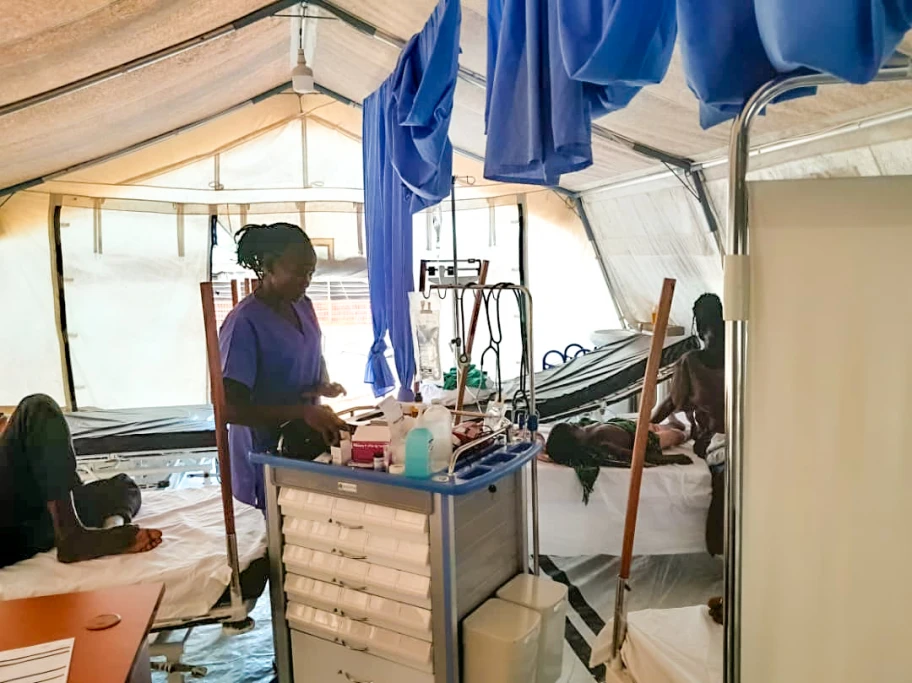
Médecins Sans Frontières (MSF) and the Ministry of Health (MoH) have re-opened Kajo Keji civil hospital Kajo Keji County in Central Equatoria state, South Sudan amid concerns over violent incidents.
The hospital resumed operations on 1st February 2023 delivering secondary level health services to operate 24 hours daily. Kajo Keji hospital was mostly destroyed due to the 2017 conflict in the country.
During the inauguration ceremony of the opening of the hospital, in attendance were Officials from Kajo Keji County and neighboring Moyo district in Uganda, Ministry of Health and Médecins Sans Frontières staff, community members and other health organizations.
Officials from MSF say since the opening of the hospital they received nine patients with gunshot wounds following unexpected incidents of violence where alleged cattle herders from Jonglei state attacked Lire Payam in Kajo-Keji County and killed tens of civilians including four aid workers of Red Cross South Sudan.
In the press release seen by The Radio Community, the hospital is to provide secondary level healthcare services relating to emergency and intensive care, medical and surgical emergencies.
It will also provide pre-delivery care for pregnant women presenting complications, delivery, and obstetrical surgeries in case of complications, medical care for sick newborn babies, ante-natal and postnatal care as well as family planning.
It adds that the hospital will give support care for survivors of sexual and gender-based violence in collaboration with other partners.
“The launch of the much-needed medical services in the hospital will help to ensure that people in Kajo Keji County are able to access quality healthcare for free. MSF is pleased to collaborate with the Ministry of Health and other actors to provide medical humanitarian assistance where it is needed, including in response to incidents of violence,” said Jocelyn Yapi, MSF head of mission in South Sudan.
“Violent incidents like this are of grave concern to MSF because they lead to suffering, loss of lives and displacement of the people. Insecurity may make it too dangerous or risky for the patients to seek the healthcare they need at clinics and medical facilities like the Kajo Keji hospital,” Jocelyn Yapi added.
Meanwhile Kiden Harriet Mickael, MoH Clinical Officer expressed gratitude to MSF to see that the hospital is operating despite occurrence of violence in the county.
“The hospital is coming back. I’m so happy that MSF are going to help our people in Kajo Keji County,”
MSF teams are also visiting areas with displaced people to assess the situation, and will begin distributing essential items such as blankets, soaps, water containers, and bed nets to help prevent malaria.
According to MSF, out of 49 Primary Health Facilities in Kajo Keji, only 25 are functional including 22 supported by non-government organisations.